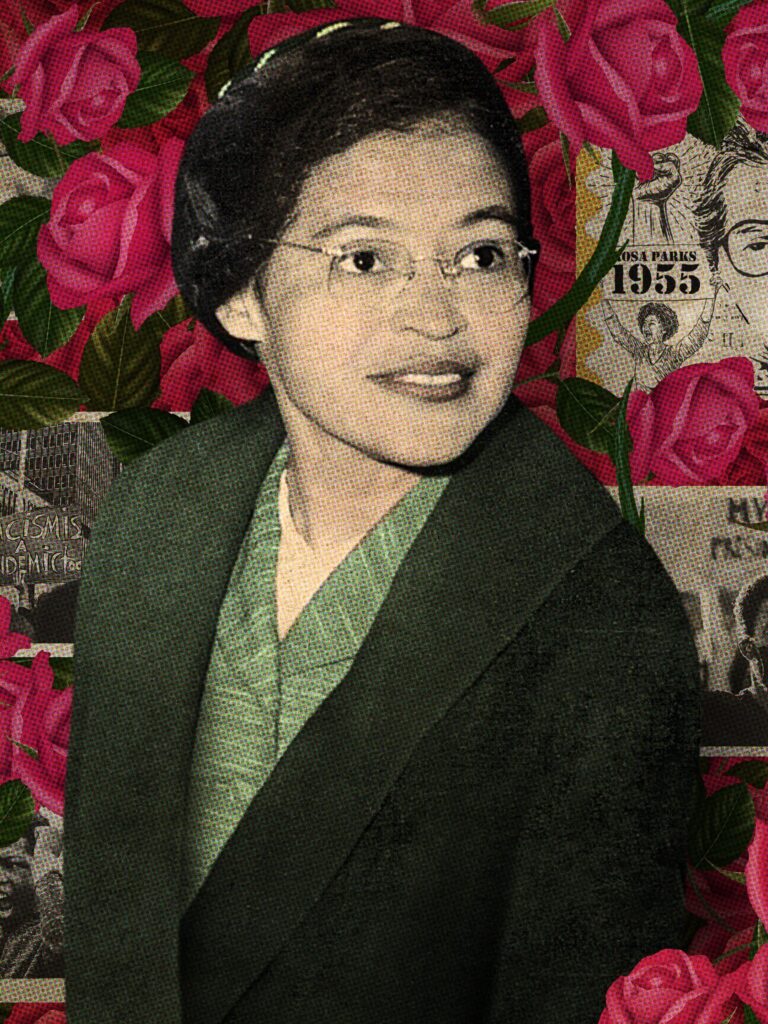Levi Wise-Catoe | Who was Rosa Parks? There is much more to Parks’s story than is taught in U.S. classrooms. Yes, Parks is a national treasure and one that is often overlooked as a mere footnote in the Civil Rights movement. On October 5, 2023, I visited the Schomburg Center in Harlem, NY, for a screening of the film, The Rebellious Life of Mrs. Rosa Parks (2022), followed by a discussion with author and screenwriter Jeanne Theoharris and the film’s director Yoruba Richen, moderated by Robyn C. Spencer-Antoine. The eventful conversation left me inspired and saddened by what Rosa Parks had to endure in life. In death, however, her historical legacy speaks of the things that her life could not, and the untold history of this woman must be told. Parks’s legacy is one of courage and resilience in the face of injustice. Her early life was marked by poverty and discrimination. These experiences informed her activism, and provide a story that can inspire future generations to fight for equality.
Known as the “Mother of the Civil Rights Movement,” Rosa Parks’s early life has been overshadowed by her later involvement in the Civil Rights movement. The Schomburg event helped to shed light on her background and the experiences that shaped her activism for equal rights. Parks was a woman who didn’t receive enough flowers for the life that she lived. She was born in Tuskegee, Alabama, and raised there along with her younger brother, Sylvester. When Rosa Parks was a young girl, her father taught her to not trust white people, so even as a young child, she had an innate distrust of white people. She would grow up challenging whites early on, fighting for herself and her younger brother against the racist white children in her neighborhood. She was known to raise a fist in self-defense at a time when Blacks were not expected to fight back against whites, especially not a Black little girl. Parks’s contributions to the Civil Rights Movement are widely recognized, but her early life and the struggles she faced are less known.
Parks’s education was complicated in those days. A young Black girl wasn’t supposed to focus on education, and most Black children didn’t get past 6 th grade due to the Jim Crow laws of the time. Black schools were inferior (used and borrowed books, shacks, lack of resources, etc.), but Parks was able to extend her education when a local Black resident opened up a school for colored girls. Parks was able to continue her education on a work-study basis due to a lack of money.
Parks’s first ambition was to teach, but she also had a knack for sewing and was known to be the best seamstress in town. It was around this time that a Black teenager by the name of Claudette Colvin refused to give up her seat on the bus in Alabama, and she was arrested. It was March 2, 1955, 9 months before Rosa Parks would do the same thing. Colvin, however, was only 15 years old and was thought to be an unpredictable delinquent youth and a teenage mother. Although the NAACP was waiting for a moment to challenge the Jim Crow laws of the Alabama bus company, they did not seize on Colvin’s act to do so. It was not until Parks was on her way home after a long day of work and decided she would not be moved, changing the course of history. While Rosa Parks was not the first Black woman to refuse to give up her seat on the bus, her actions sparked a movement that led to significant progress in the fight for racial equality in the United States.
This historical event was not only important for Parks’s activism. It was also the moment that a young, newly appointed pastor at Dexter Avenue Church, the site where activists were organizing to begin the Alabama Bus Boycott, emerged into the public eye: Dr. Martin Luther King, Jr. King became involved in activism and the non-violence movement through his sermons during the meetings and began to incorporate these ideas into his sermons at the Dexter Avenue Church. However, he was not previously involved in non-violent civil disobedience. His wife, Coretta Scott King, however, had been an activist beginning in college. By contrast, King was actually a gun carrier at the time. To organize the Bus Boycott, Parks, Coretta, and the other Black women of the church and community set up carpooling so people would be able to get back and forth to work. Coretta cooked food for bag lunches and hot meals and drove her car to make sure that the community would not need the city’s buses for any reason whatsoever because they had one another. This would cripple the Alabama Bus company into near bankruptcy. By the end of the year, the courts passed a law to desegregate all city buses. Unfortunately, at this point, Parks became the sacrificial lamb. Instead of Parks receiving recognition as a hero for creating one of the single most successful boycotts in modern history, the NAACP was shut down in Alabama; and Parks received death threats, was fired from her job, and blacklisted. While Parks’s career moved in one direction, King, who never lifted a hand, a call, or a job to Rosa Parks once his career took off, was acknowledged for the success of the boycotts and became the face of the movement. Despite King’s abandonment, Parks and Coretta remained good friends.
I was unaware that Parks lived in the projects and never earned enough money to buy a house. She wasn’t a wealthy woman; although she was famous, she never received a paying job that offered her a pension with any type of benefit until she was in her 60s. Parks’s history speaks to how Black people treat their leaders, particularly to the backseat status of Black women who were involved in the Civil Rights movement but largely ignored or overlooked. The discussants at the event also addressed how Rosa Parks supported up-and-coming activists such as Malcolm X when he came to Chicago; indeed, the person that Malcolm X most wanted to meet was Rosa Parks. She would also serve as a mentor to the SNCC, CORE, and the Black Panther Party. I find Rosa Parks to be unsung and riveting, and so much more than the Black woman who refused to give up her seat on the bus. I would implore everyone to rediscover Rosa Parks.

